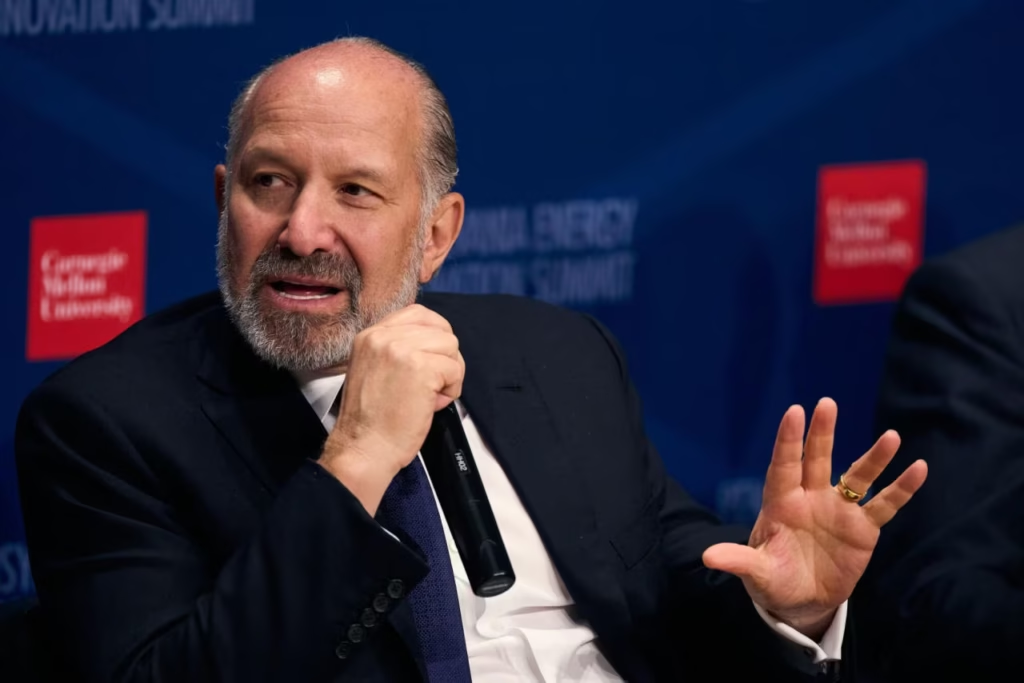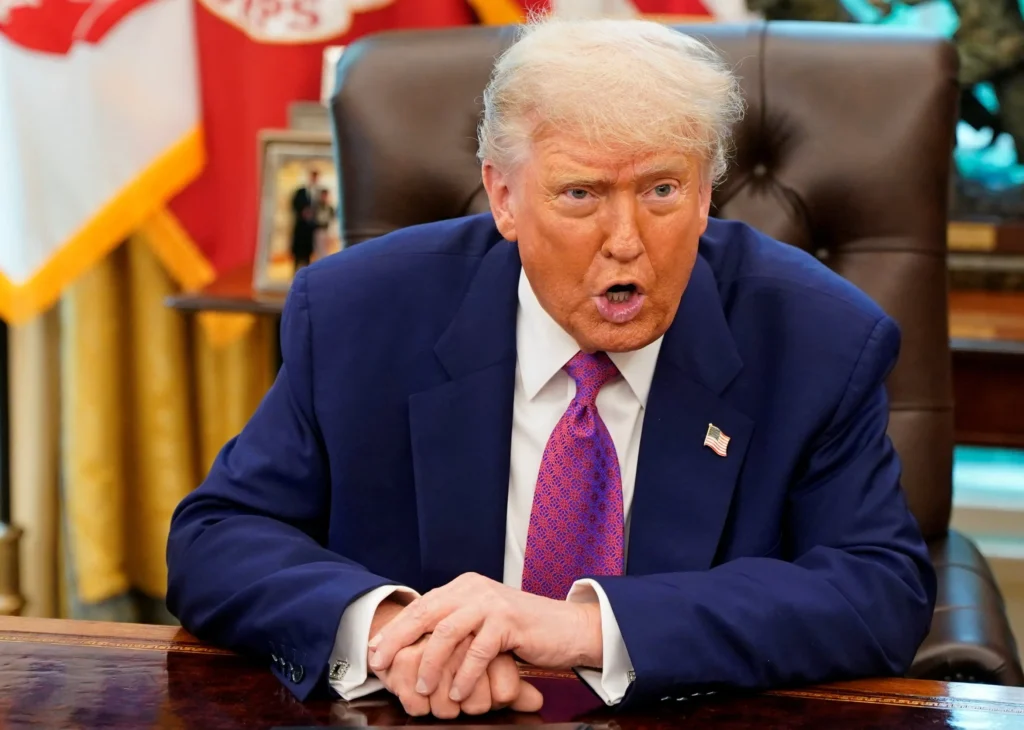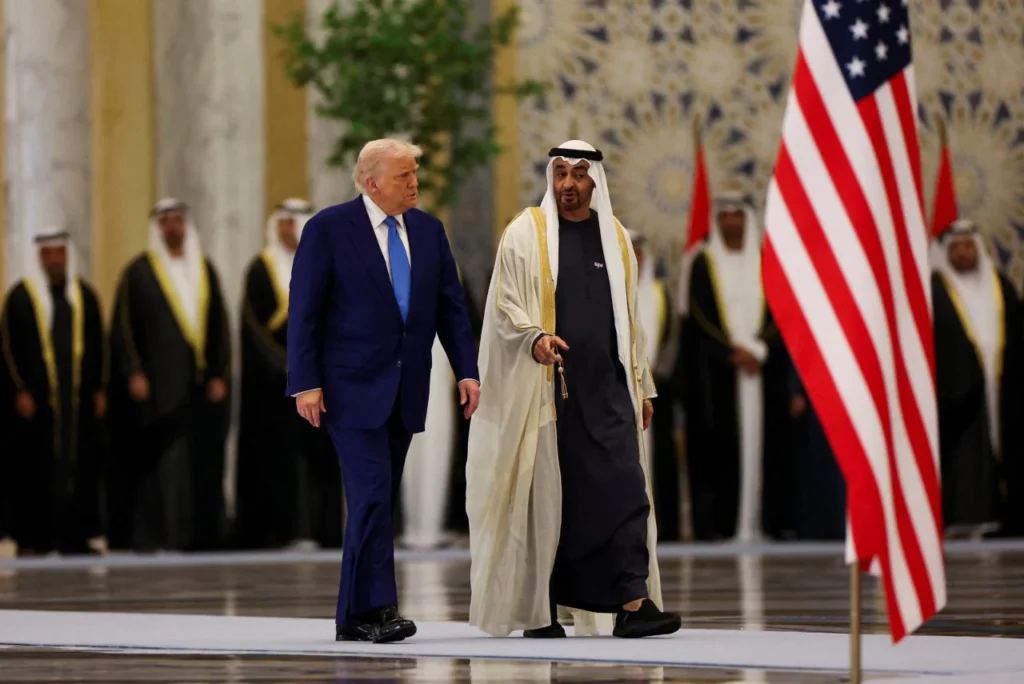A Bold Tech Move Meets Unexpected Resistance
What was meant to be a high-powered, ambitious leap into global technology is now stuck in a maze of national-security red tape. A proposed semiconductor partnership between a Trump-affiliated investment group and a company based in the United Arab Emirates has come under intense scrutiny by U.S. authorities. The deal, which was once seen as a strategic boost to America’s presence in the global chip race, now finds itself paused—trapped at the intersection of political legacy, international relations, and national defence concerns.
At the heart of the controversy is Donald Trump’s growing influence in global business ventures even after his presidency. As chips become the new oil of the digital world, everyone wants in—but not without strings attached. And in this case, the strings may be tangled in U.S. national-security priorities.

A Glimpse Into the Deal
This isn’t just any investment deal—it’s about semiconductors, the tiny powerhouses that drive everything from smartphones to missile systems. The Trump-affiliated entity had plans to acquire or partner with a UAE-based chip manufacturer, hoping to strengthen supply chains and potentially counterbalance China’s tightening grip on semiconductor production.

For the United Arab Emirates, the proposal was more than attractive. It offered technological advancement, stronger ties with American investors, and a potential position in the global chip economy. From a business perspective, it looked like a win-win. But as the ink was about to dry, federal regulators in the U.S. raised their hands—and eyebrows.
National Security at the Forefront
The U.S. Committee on Foreign Investment, known for its tough stance on deals involving foreign entities and sensitive technologies, started reviewing the terms of the agreement. Their primary concern? Whether the deal would compromise America’s access to secure semiconductor technology—or worse, open doors to foreign surveillance, backdoors, or cyber vulnerabilities.

While there is no public evidence of wrongdoing, the concern is preemptive. In today’s climate, where cybersecurity threats are as real as conventional warfare, allowing foreign-linked firms too close to core infrastructure—even under American branding—is seen as a high-stakes gamble.
For Trump’s allies, the delay feels like political interference. For national-security watchdogs, it’s just standard procedure. The disagreement, however, is causing frustration on both sides, especially with millions of dollars and strategic timelines hanging in the balance.
The Trump Factor
What adds heat to the fire is the Trump connection. His name carries weight—both influential and controversial. Supporters view his involvement in post-presidency ventures as proof of ongoing relevance, especially in strategic sectors like tech and energy. Critics, however, see potential conflicts of interest, blurred lines between public policy and private gain, and international entanglements that could ripple into larger geopolitical concerns.
This chip deal is more than just an investment—it’s also a statement. It shows how former leaders and their networks continue to shape global narratives. And when that influence meets national security reviews, sparks are inevitable.
The UAE’s Strategic Interest
From the UAE’s point of view, this partnership was a calculated move to accelerate its transition from oil to innovation. The Gulf nation has made no secret of its ambition to become a global tech hub. Massive investments in artificial intelligence, cybersecurity, and semiconductors form a part of that vision.
With deep pockets and a pro-business environment, the UAE sees chips as not just a commodity, but a key to future sovereignty and relevance in a fast-changing world. Partnering with a Trump-backed group was not just a business play—it was also a way to align with Western tech powerhouses.
Behind Closed Doors: Negotiations and Pushbacks
Sources close to the matter suggest that negotiations are ongoing but tense. There’s an effort to restructure the deal in a way that appeases regulators—possibly by limiting foreign control, tightening data safeguards, and ensuring American operational oversight.
Lawyers, analysts, and political advisors are involved in daily talks, trying to strike a balance between ambition and regulation. Some insiders believe the deal still has life, but it won’t come through without concessions and compromises.
At the same time, questions are being raised: Should former U.S. leaders have unrestricted freedom in striking foreign deals involving sensitive technologies? Should political associations impact business deals in the private sector? These questions don’t have simple answers—but they are shaping the pace of this high-stakes semiconductor saga.
Ripple Effects Across the Industry
This deal—and its complications—is sending shockwaves across the global tech and investment communities. Venture capitalists and tech entrepreneurs are watching closely, noting how political histories can influence current regulatory decisions. It’s a reminder that in industries tied to national defense, nothing is ever just business.
Investors are also re-evaluating risk in global semiconductor plays, especially in regions where national alliances, security doctrines, and political sentiments might turn a straightforward transaction into a geopolitical chess move.
And for U.S. chipmakers, the case is a fresh example of how the battle for technology dominance is no longer just about innovation—but also about who controls access, influence, and policy enforcement.
Where Does It Go From Here?
For now, the deal remains in limbo. There’s a real possibility that it could move forward with revised terms, stronger oversight, and a more diluted foreign stake. Alternatively, it could collapse entirely under the weight of regulatory hurdles and political noise.

Both outcomes carry implications—not just for the individuals or countries involved, but for the broader global tech ecosystem. The story is still unfolding, but one thing is clear: in today’s world, even the smallest chip can carry the biggest geopolitical consequences.
A Broader Conversation
As we witness this unusual tie-up between a controversial political figure, a rising Gulf state, and a sensitive tech sector, the story also invites a broader conversation about the future of global capitalism, digital sovereignty, and ethical leadership.
Is this the future of post-presidency business influence? Will rising nations like the UAE have to continuously navigate a landscape of suspicion and gatekeeping when it comes to tech partnerships? And can national-security priorities be balanced with economic ambition in a truly globalized world?
These are the deeper threads running through what may seem like a standard investment deal. And while the story started with a headline, it’s likely to end with a legacy—shaping how business, politics, and technology intersect for years to come.
Do follow UAE Stories on Instagram
Rahat Fateh Ali Khan’s Magical Dubai Concert Promises Unforgettable Night













